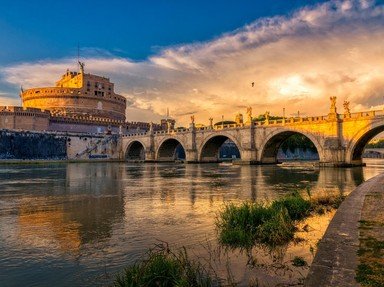Quiz Answer Key and Fun Facts
1. Highest official of the Roman Republic, there were two to keep power in check
2. Defender of the plebeians
3. Group that administered laws and decrees, also made foreign treaties
4. Official who assessed property holdings and supervised pubic morality
5. Assembly made up of the army of Rome
6. First general in army, later served as magistrates
7. Assembly that represented the ordinary citizens
8. Republican official who ruled in times of grave emergency
9. Official in charge of maintaining public buildings and regulating festivals
10. Chief Priest of the College of Pontiffs
Source: Author
ponycargirl
This quiz was reviewed by FunTrivia editor
bloomsby before going online.
Any errors found in FunTrivia content are routinely corrected through our feedback system.
